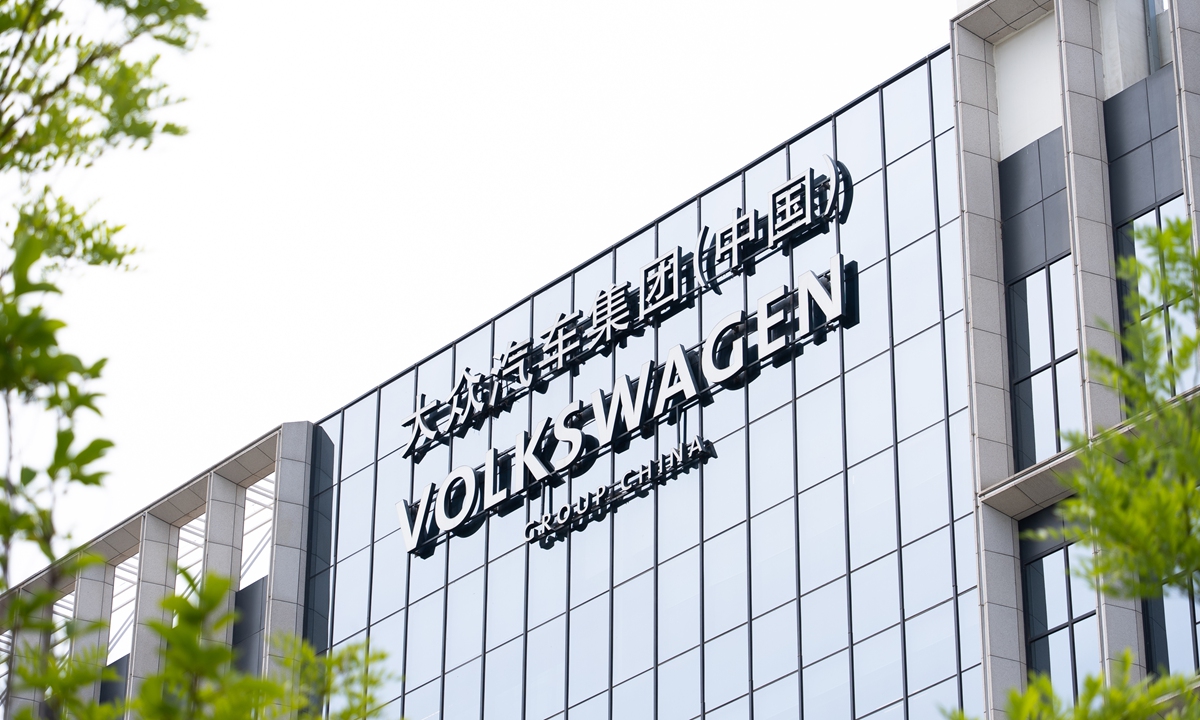- Admin
- Jan 17, 2025
- Buying Guides
- Read: Small Medium Large
Chinese investors consider buying Volkswagen’s German plants to expand EV production in Europe
Chinese officials and automakers are eyeing German factories slated for closure and are particularly interested in Volkswagen’s sites , a person with knowledge of Chinese government thinking told Reuters.
Buying a factory would allow China to build influence in Germany’s prized auto industry, home to some of the oldest and most prestigious car brands, the person said.
Chinese companies have invested across a range of industries in Europe’s biggest economy, from telecommunications to robotics, but have yet to set up traditional car manufacturing there despite Mercedes-Benz having two large Chinese shareholders.
Any such move could mark China’s most politically sensitive investment yet. VW has long been a symbol of Germany’s industrial prowess, now threatened by a global economic slowdown hitting demand and creaking transition to green technologies.
Building cars in Germany for sale in Europe would allow China’s EV makers to avoid paying EU tariffs on electric cars imported from China and could pose a further threat to European manufacturers’ competitiveness.
While bids could come from private companies, state-owned businesses or joint ventures with foreign players, Chinese authorities reserve the right to approve certain investments abroad and are likely to be involved in any offer from early in the process.
Investment decisions would hinge on the new German government’s stance towards China after an election in February, the person said.
The two economies became deeply intertwined during Angela Merkel’s 16 years in office, fuelled by investments and exports from German carmakers to China.
But relations have cooled as the current coalition pushes to reduce dependence on China. Foreign Minister Annalena Baerbock has described President Xi Jinping as a “dictator”, and China as a rival.
A source from Germany’s foreign office said China had evolved to become a systemic rival.
Volkswagen is exploring alternative uses for its Dresden and Osnabrueck factories under a cost-cutting drive to pare back its German operations. Europe’s biggest automaker, which owns brands including Porsche, Audi and Skoda, has suffered a fall in sales in the face of rising competition from Chinese companies.
VW executives wanted to close several plants but faced resistance from unions. In a deal struck before Christmas they agreed to end production in Dresden, a 340-worker plant making the electric ID.3, from 2025, and Osnabrueck, where 2,300 employees produce the T-Roc Cabrio, from 2027.
VW would be open to selling the Osnabrueck factory to a Chinese buyer, a person familiar with the company’s thinking told Reuters.
“We are committed to finding a continued use for the site. The goal must be a viable solution that takes into account the interests of the company and employees,” a spokesperson said, declining to comment specifically on speculation about an offer.
Chinese companies are concerned about how they would be received by German unions, which hold half the seats on German companies’ advisory boards and seek far-reaching site and job guarantees, the person familiar with China’s thinking said.
Stephan Soldanski, a union representative from Osnabrueck, said workers at the plant would have nothing against producing for one of Volkswagen’s China-based joint venture partners.
“I could imagine that we would produce something for a China joint venture .... but under the VW logo and under VW standards. That is the key condition,” he said.
China seeks to open doors
A Chinese foreign ministry spokesperson said companies that want to invest in Germany should be allowed to do so.
“China has introduced a series of opening-up measures to create new business opportunities for foreign companies ... It is hoped that the German side will also uphold an open mind, (and) provide a fair, just and non-discriminatory business environment for Chinese firms to invest,” the spokesperson said in a statement to Reuters.
The source with knowledge of Chinese government thinking, who spoke to Reuters on condition of anonymity because of the sensitivity of the matter, declined to name specific potential investors.
Asked about the person’s comments, China’s chamber of commerce in Berlin confirmed that Chinese investors were strongly interested in Germany’s car sector, viewing it as a strategically important long-term investment prospect.
Many Chinese carmakers believe that winning over Germany’s demanding consumers is a key marker of success, they added.
Selling factories could be cheaper for VW than closing plants, said a banker familiar with the carmaker, adding that they could fetch between 100 million euros and 300 million euros (US$103 million to US$309 million) each.
Volkswagen did not comment on the value of the assets.
Stephan Weil, premier of Lower Saxony and supervisory board member at VW, declined to comment.
China EV makers scout locations
Many Chinese carmakers are scouting locations for plants in Europe, the world’s second-largest EV market, to circumvent tariffs imposed by the European Commission last year to counter what it said were unfair subsidies in China.
Most have so far opted to build new factories in lower-cost countries with weaker trade unions, such as BYD in Hungary and Turkey. Leapmotor is planning production with Stellantis in Poland and Chery Auto will start making EVs this year at a plant formerly owned by Nissan in Spain.
Chinese investors have already surveyed plants in western Europe, according to a separate source familiar with those discussions, including Ford’s plant in Saarlouis in Germany and Volkswagen’s Audi plant in Brussels.
Sources told Reuters in November that Leapmotor was considering using a plant in Germany for EV production.
Chery told Reuters it is looking at various options for production in Europe and expects to make a decision this year.
Its top European executive told Reuters last October that while it would be quicker to buy an existing plant, a new plant would allow Chery to build to the latest standards.
BYD told Reuters it has long-term European goals that are largely independent of short-term national politic.




